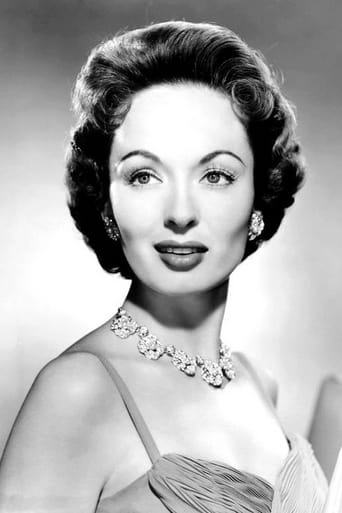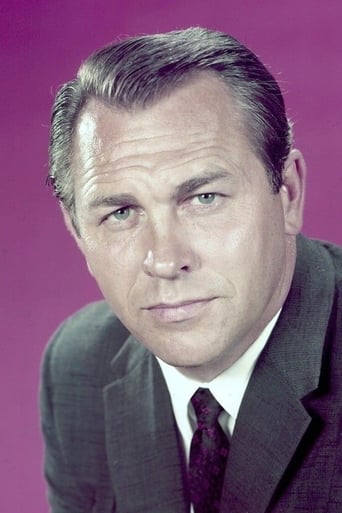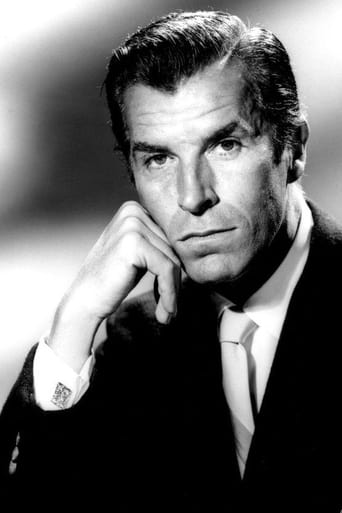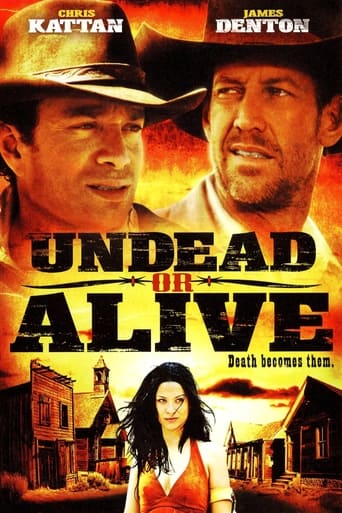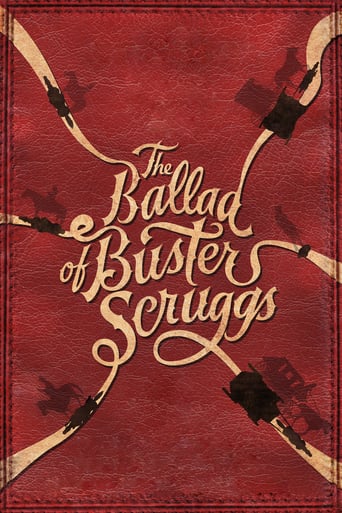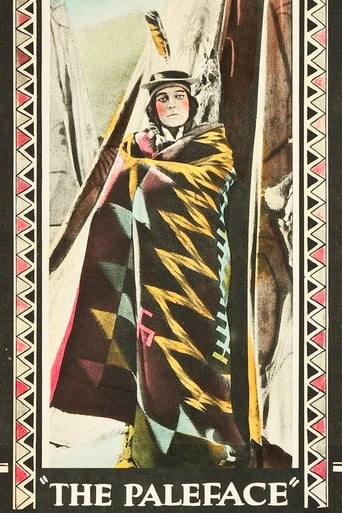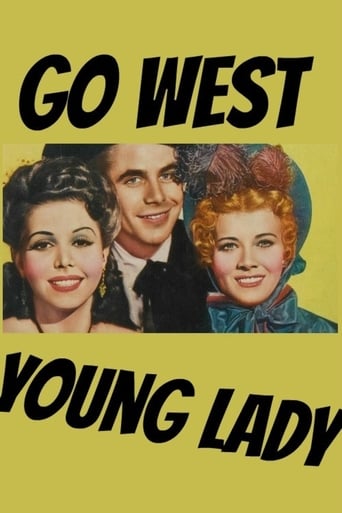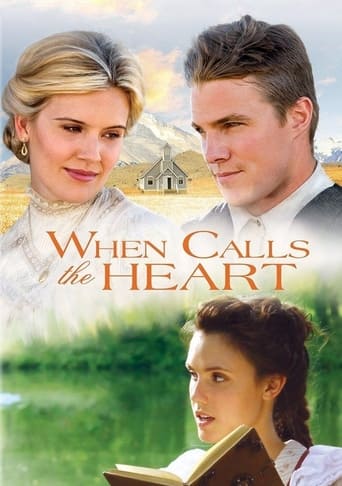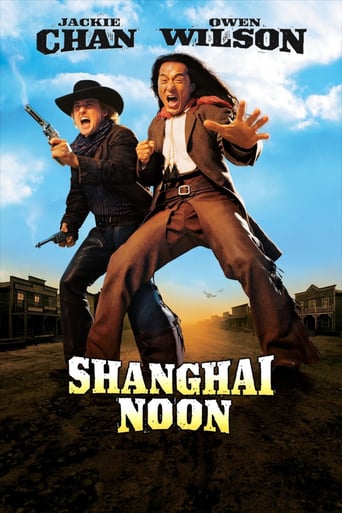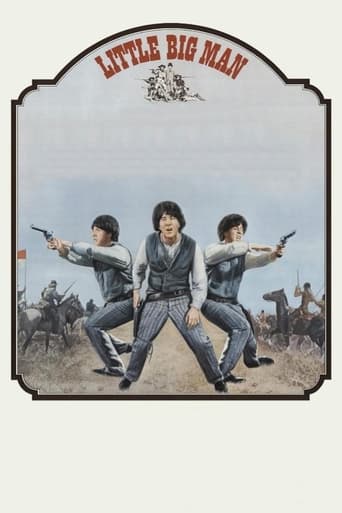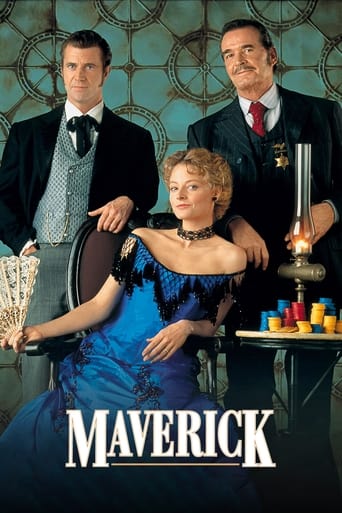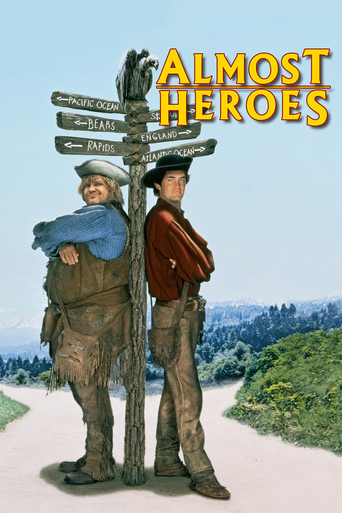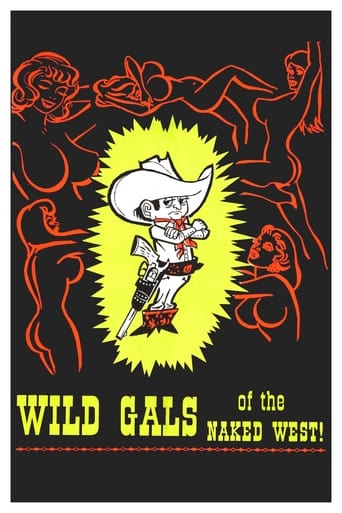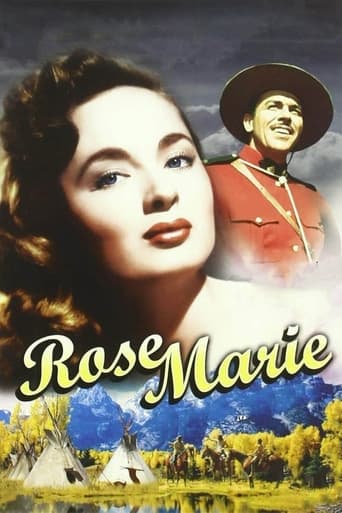
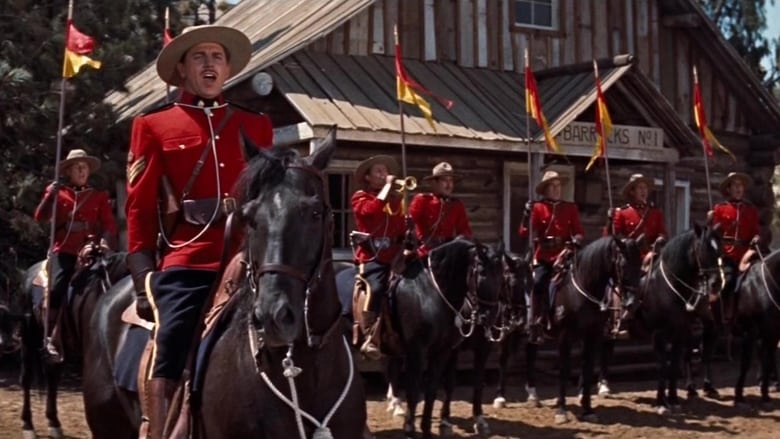
Rose Marie (1954)
Rose Marie Lemaitre, an orphan living in the Canadian wilderness, falls in love with her guardian, Mike Malone, an officer of the Royal Canadian Mounted Police. The feeling is mutual. But, when she leaves to learn proper etiquette, Rose Marie meets a trapper named James Duval, who also falls for her. Further complications arise when Native American Chief Black Eagle -- a rival of Duval's -- is murdered.
Watch Trailer
Cast


Similar titles
Reviews
Copyright 3 March 1954 by Loew's Inc. A Metro-Goldwyn-Mayer picture. New York opening at the Radio City Music Hall: 1 April 1954 (ran five weeks). Los Angeles opening: 2 March 1954. U.K. release: 20 September 1954. Australian release: 14 June 1954. 104 minutes. SYNOPSIS: The beautiful daughter of an Indian chief (Yowlachie) is madly in love with a trapper (Lamas). The trapper is also loved by "a waif of the forest" (Blyth). Anyway, the trapper is arrested for murder by a Mountie (Keel), even though the Mountie is unsure of the trapper's guilt. NOTES: The Rudolf Friml musical was previously filmed by M-G-M in 1928 with Joan Crawford and in 1936 with Nelson Eddy, Jeanette MacDonald, and James Stewart.It was widely rumored around Hollywood in 1954 that Ann Blyth's singing voice had "gone" and that she was dubbed in "Rose Marie". Certainly it does not seem like the same voice we heard in her first movie, "Chip Off the Old Block" (1944). In fact, being the bold young man I was in 1955, I actually asked Miss Blyth if she had done her own singing in "Rose Marie". She did not reply, so the mystery remains. Except for one little fact: In "One Minute to Zero" (1952), Ann joins Robert Mitchum in singing "Tell Me, Golden Moon". Her singing voice, to say the least, is weak and strained. Now it could well be that she had deliberately disguised her voice for that movie (it's also an outside chance that she was dubbed in "One Minute to Zero"), but there is no doubt that this episode sparked the rumor that her voice had gone. COMMENT: Although it was compared unfavorably with the previous Jeanette MacDonald version by both fans and critics, this was nonetheless a great commercial success – thanks mostly to the novelty of CinemaScope. It also featured a thrilling production number staged by Busby Berkeley on – alas! – an extremely obvious studio stage. Unfortunately, Mervyn LeRoy, content to let CinemaScope do all the work, directed the remainder of the film in a somewhat plodding fashion. OTHER VIEWS: The dialogue is long, the plot is ponderous. - Bosley Crowther. A second-rate production Howard Keel was the only one in it who could sing. - Powell Findon.
Very different from the '36 Jeanette MacDonald-Nelson Eddy version. The screenplay more resembles the plot details of the 1924 play. However, it thankfully simplifies the excessively complicated romantic relationships of the play. The '36 version further simplified the romantic entanglements, with Eddy having no legitimate competition for Jeanette's heart. That's the way Eddy liked his films with Jeanette. Here, Howard Keel's and Fernando Lamas' characters compete for Rose Marie's(Ann Blythe) heart, although clearly she thinks of Keel's Mountie character as more of a father figure. Keel sings the classic Friml-Harbach-Hammerstein songs "The Mounties" and 'Rose Marie". Ann initiates the classic "Indian Love Call" on several occasions, with Lamas responding.Blythe's frontierswoman persona will remind you of the character of Anne, in "Anne get Your Gun", and Calamity Jane, in the film of the same name, released just the year before. Keel was the male lead in both of those films, in which the woman eventually is 'civilized' sufficiently to become an acceptable mate for him. In this film, the same transformation is attempted. but, in the end, Keel realizes that Rose Marie, in her current state of mind, wouldn't be happy as a mountie's settled wife. She prefers to wander in the wilderness, as expressed in the new song by Frimi and Webster "Free to Be Free". Thus, he eventually facilities her reunion with wandering trapper, of dubious reputation: Jim Duval(Lamas), whose life he had recently spared, when he was wrongly sentenced to death for the murder of an Indian chief. In contrast, in the '36 film, the Mountie played by Eddy captures Marie's cherished brother, who had escaped from prison, and who presumably will be sentenced to death for a murder committed during that escape. Regardless, Marie's love for Eddy's character is not extinguished: a rather awkward response. Superficially, the characterization of Rose Marie here couldn't be more different from the '36 version, where she has been a city-confined prima dona of the opera stage. However, they have the feminist commonality of initially feeling that they don't need a man and children to feel fulfilled.Margie Main: the hotel proprietor, and Bert Lahr, as an aging Mountie, are included as would be comic reliefs. Lahr does get to do a humorous take on Keel's "Mounties", with "I'm a Mounty Who Never Got his Man", in his inimical style. Unfortunately, their main interaction together was deleted, although it's included as an extra on the current DVD release. Keel seems unusually wooden, especially in his speech, in this film, compared to his other films I've seen: a charge often leveled(unjustifiably, in my opinion) at Nelson Eddy. Perhaps because he isn't the romantic lead? This, along with his monotone speaking is the chief distraction I find with this film. Ann is fine as Rose Marie, and Lamas as her new found 'bad boy' love, with a similar wanderlust.In the play, Black Eagle is Wanda's lover, not tribal chief, and she kills him to protect another of her lovers, not included in this film, from his wrath. In the '36 film version, her role is minimal. However, in the present version, she kills Black Eagle as revenge for a beating by him for her dalliance with Duval. However, having seen Duval together with Rose Marie, as observers of the Totem Pole Dance, she remains quiet when Duval is blamed for the murder, partially as revenge for his abandonment of her for Rose Marie.The Totem Pole Dance, staged by Busby Berkeley, utilizes a new song, rather than the original, as in the '36 version. It is a much more modern stylized dance than in the '36 film. Wanda is the lone female, surrounded by a bevy of men, who cavort with her. It comes across as a sort of fertility dance. Joan Taylor, who played Wanda, was most frequently cast in westerns, including some TV series.Incidentally, sensible frontiersmen didn't wear coonskin caps in the warm season. They were too hot! That was just a standard Hollywood detail to denote a backwoods frontiersman(or woman, in this case).Now that both this film and the '36 version are currently available for purchase on DVD, we can easily compare them. To me, both have their merits and minuses. However, I suspect the younger generation will clearly favor this version, for its CinemaScope filming and more modern screenplay and acting. However, I find the singing more fervent in the '36 film. Also, I generally prefer the acting of Jeanette and Eddy over that of Ann and Keel. I also prefer "Anne Get Your Gun" and "Calamity Jane" over this film.
The cannon of Jeanette MacDonald and Nelson Eddy films have created a cult following over the years, and that fan base is well deserved. Of their movies, only one, "Rose Marie", was remade, although it is quite different from their version, which was a remake as well. All three versions take place in the Canadian Rockies and focus the love a rugged Mountie has for the titled character. In this version, Rose Marie (the lovely Ann Blyth) is a tomboy who is "Free to Be Free" until Mountie Howard Keel has her introduced to hotel proprietor Marjorie Main with (get this!) the purpose of turning her into a lady. Keel falls in love with the transformed Blyth, but she only loves trapper Fernando Lamas who is wanted for murder.Unlike MacDonald and Eddy's version, it is not Rose Marie and the Mountie who sing the famous "Indian Love Call"; Lamas's trapper gets that honor, and it is one of the most beautiful duets on screen. (The same year, Jane Powell and Vic Damone did a beautiful duet of "Will You Remember?" from "Maytime" in the Sigmund Romberg bio pic "Deep in My Heart", making three Eddy/MacDonald duets recreated on screen that year, the other being "Deep in My Heart's" "Lover Come Back to Me" from "New Moon"). Keel gets to sing the rousing "Here Come the Mounties", but unfortunately doesn't share a duet with Blyth. That would be saved for Jane Powell and the similar backwoods setting of the same year's masterpiece "Seven Brides For Seven Brothers".If the thought of Main as a Canadian Henry Higgins doesn't make you laugh, then pair her "Ma Kettle" with "Cowardly Lion" Bert Lahr as an aging Mountie fighting off her advances. A cut song between the two ("Love and Kisses") was on MGM's soundtrack album and later was part of the original "That's Entertainment Part III" additional footage tape of numbers not used for that documentaries theatrical release. Lahr's "The Mountie Who Never Got His Man" (written for the movie) did make it into the released print, and as a nod to his "Wizard of Oz" fans, Lahr utilized some of the same comic grimaces and even some sounds that resemble his lion's roar.An opulent Indian dance ("Tom Tom Totem") was staged by Busby Berkley, and if you can get past the obvious backdrop, you will enjoy it. The fact that movie studios were still making operettas in the mid 1950's is pretty amazing in itself, and the result for "Rose Marie" is one of delightful adult romance.
MGM's first CinemaScope musical is pictorially splendid, with what looks like on-location shooting of the Canadian wilderness, or a very good faking thereof. The lake and mountain vistas must have been spectacular on the big screen; even on a TV screen they're impressive. Also, the screenwriters dump the pretensions that marred the 1936 Nelson-Jeannette version and return closer to the 1924 stage story, streamlining it nicely and removing some of the clunkiness in the dialog. Only a handful of the original Friml-Harbach-Hammerstein-Stothart songs survive, but several of the new ones are by Friml, too (with lyrics by Paul Francis Webster), and one, "I Have the Love," is quite nice. Ann Blyth, while not credibly a backwoods French-Canadian, is lovely and with a fine set of soprano pipes, and Howard Keel reminds us again of how Hollywood underrated him--one of our most masculine musical leading men, with an easy understated acting style to back up his booming vocals. Fernando Lamas hasn't that much to do, and it feels unfair that one of Ms. Blyth's leading men has to be a good sport and just step back and let her love the other. And Bert Lahr may be a comic genius, but his and Marjorie Main's material is so rotten that you tend to forget it. Still, a couple of soundstage scenes aside, it's a gorgeous big-screen production, and not as dramatically inert as many other operetta-derived musicals. A very pleasant 107 minutes.


